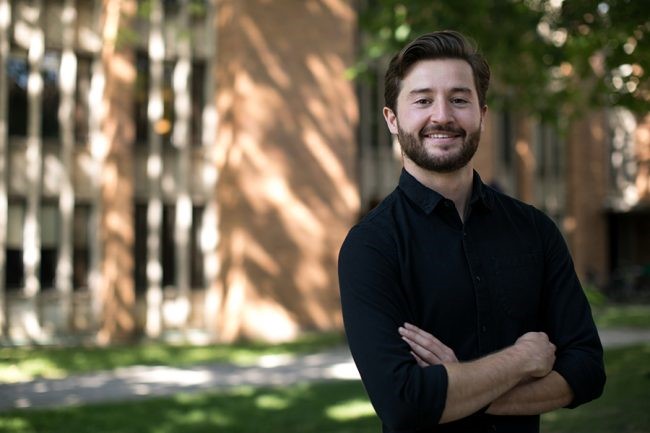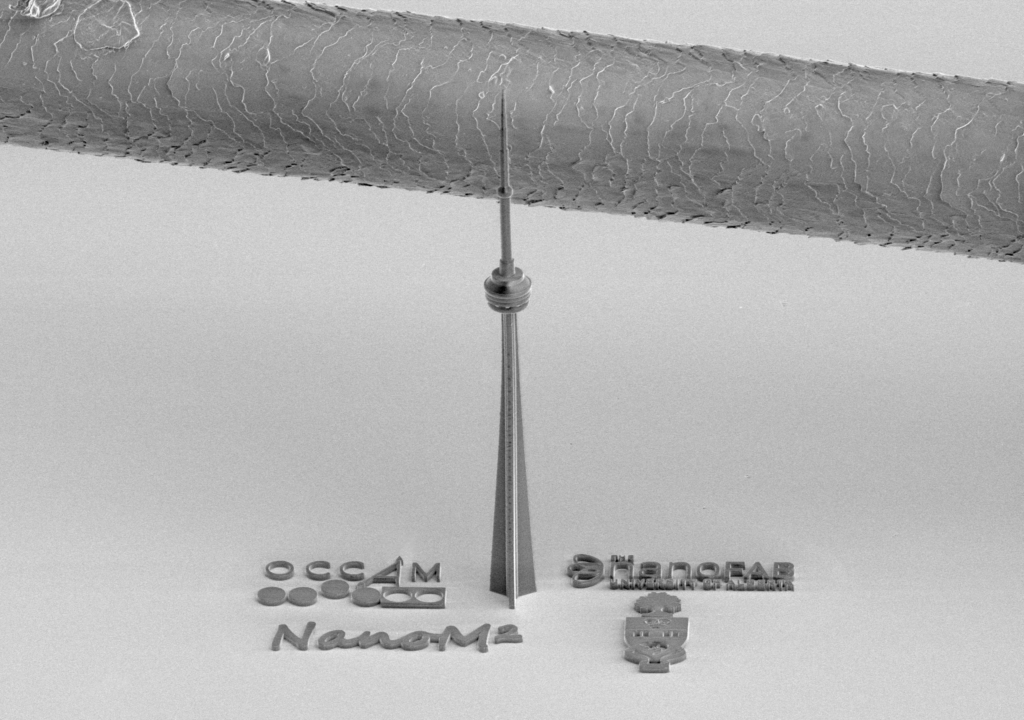
Peter Serles (MIE PhD candidate) dreams of becoming a professor — but he knows that to get there, he’s going to have to do more than just publish papers.
“As a prof, there are so many different skill sets you need,” he says.
“You need to be able to lead teams and build collaborations, whether that’s managing your own lab group or working with external partners. You also have a duty to clearly communicate your findings, and to make sure they are having a positive impact across the society you serve.”
Serles is one of 15 students selected from across U of T for the new Connaught PhDs for Public Impact Fellowship Program, facilitated by the Centre for Graduate Professional Development within U of T’s School of Graduate Studies.
The new Fellows receive additional funding to support activities such as conferences, courses or workshops that enhance their professional development. They also get access to networking and mentorship opportunities with other fellows, public figures, public and private institutions, and the media.
As the only member of the inaugural cohort to hail from the Faculty of Applied Science & Engineering, Serles is excited for the opportunity to work with scholars outside his discipline.
“I think that the most interesting research happens when you can go beyond the bounds of your own field,” he says. “When you can leverage what you know with complementary expertise, you can spark new ideas and address really complex challenges that cut across many sectors and wouldn’t be possible for either researcher individually.”
For his PhD thesis — supported by an NSERC Vanier Scholarship — Serles is researching nanoscale 3D printing in order to capitalize on the unusual mechanical and electrical properties that appear at the nanoscale for full-scale device design. He recently printed The CNano Tower, which is a scaled down version of this Toronto icon that is invisible to the naked eye.

Serles aims to use nano-3D printing to design high strength-to-weight materials for the aerospace sector, ultra-impact resistant materials for use in the field of defence, and 3D shapes that mimic the human body to help grow stem cells.
Outside the lab, Serles has a lifelong interest in leadership, starting from his experiences heading up engineering design teams and sports teams during his undergraduate degree studies. At U of T, he has honed his teaching skills by serving as a course instructor for a second-year mechanical engineering design course, and by volunteering with the Engineering Outreach office. In 2019, he created a series of hands-on activities designed to help teach STEM concepts such as advanced manufacturing to an audience of elementary school students.
Serles is a Junior Fellow of Massey College, and has served on the Faculty Council for engineering as well as on the Graduate Student Advisory Committee, which provides advice and recommendations to the Dean of the School of Graduate Studies.
He has also been active with the Canadian Science Policy Centre, helping organize the organization’s annual conference as well as serving as editor for The Canadian Science Policy Magazine. He is also an associate editor for the Journal of Science Policy and Governance.
Over the next few months, Serles expects that the Connaught PhDs for Public Impact Fellowship Program will connect him to role models that can help him better develop all the components that go into a successful career as an academic in the public interest.
“No two people ever end up in academia quite the same way,” he says. “There’s no set path, but by learning how other people have done it, or the moments and opportunities that turned out to be critical for them, I’m hoping to gain some insight that will serve me well — and hopefully, one day I’ll get to pass that knowledge down to the next generation.”
– This story was originally published on the University of Toronto’s Faculty of Applied Science and Engineering News Site on September 21, 2022 by Tyler Irving